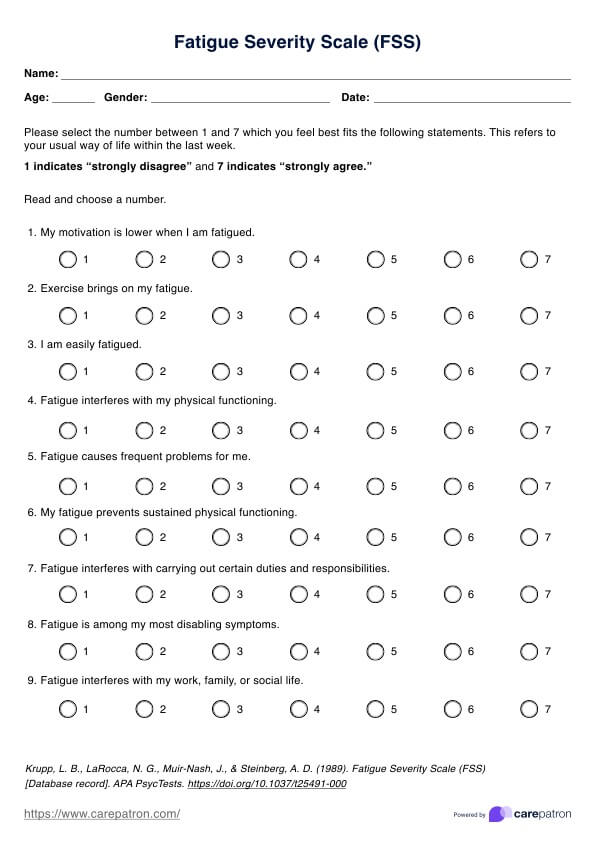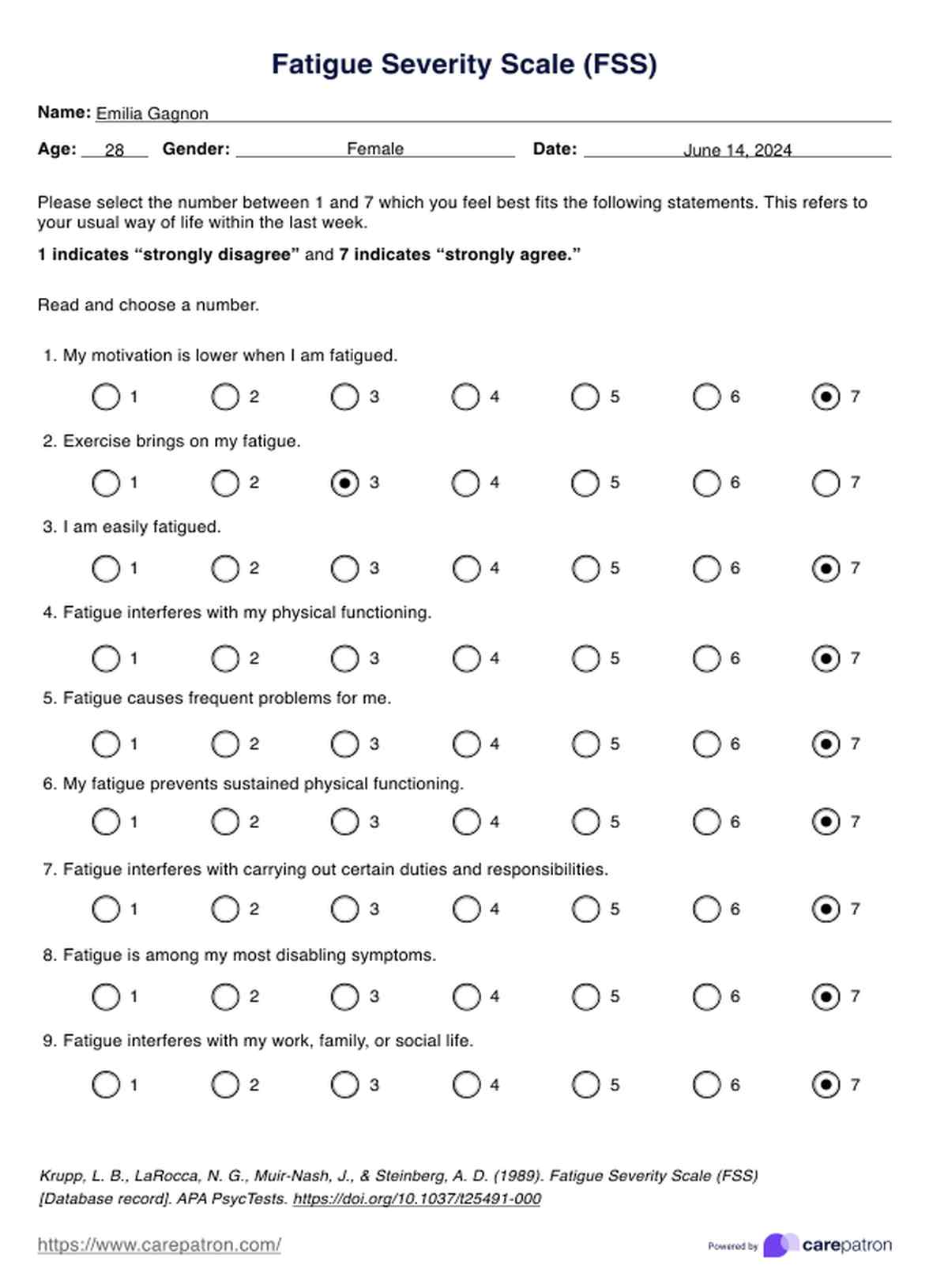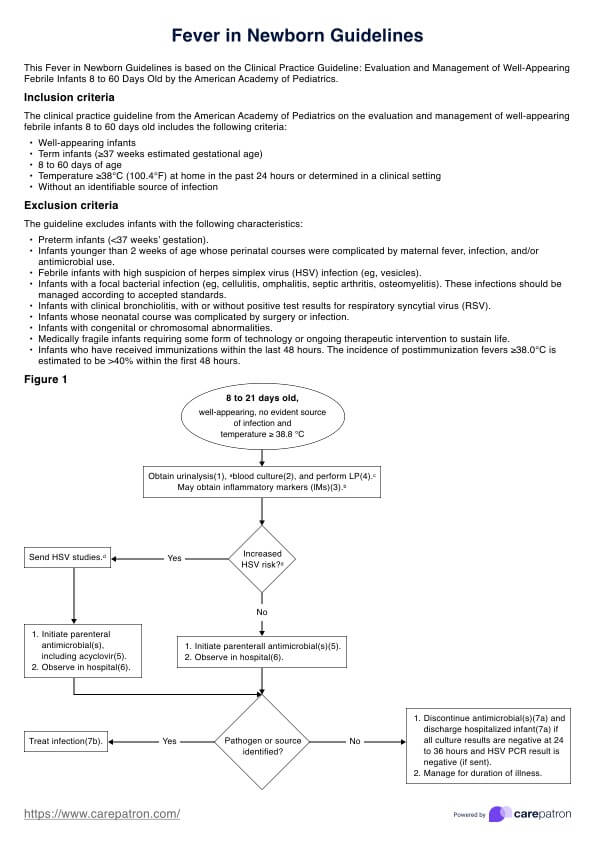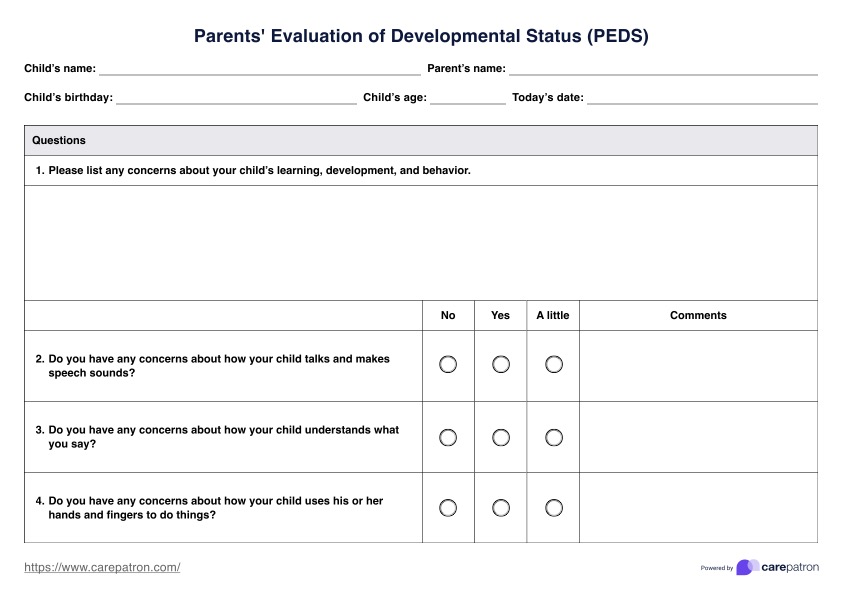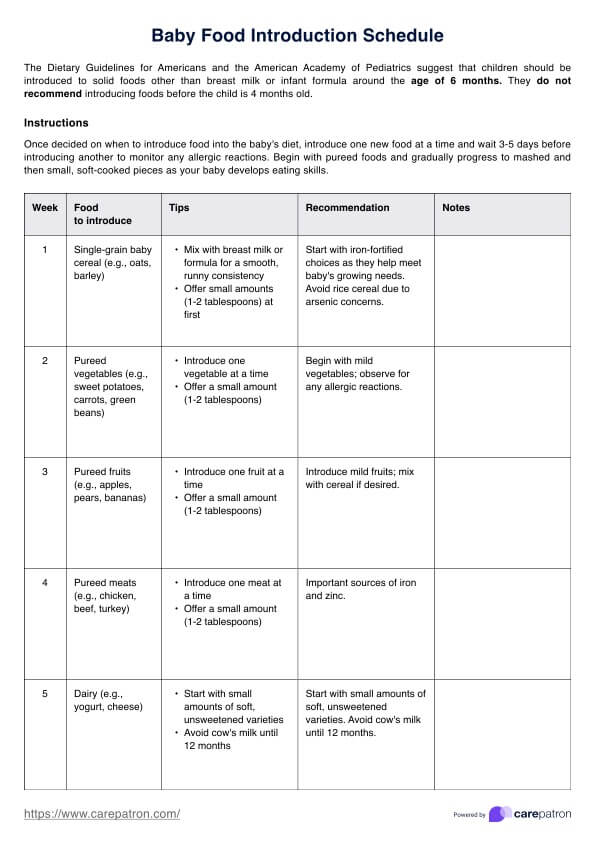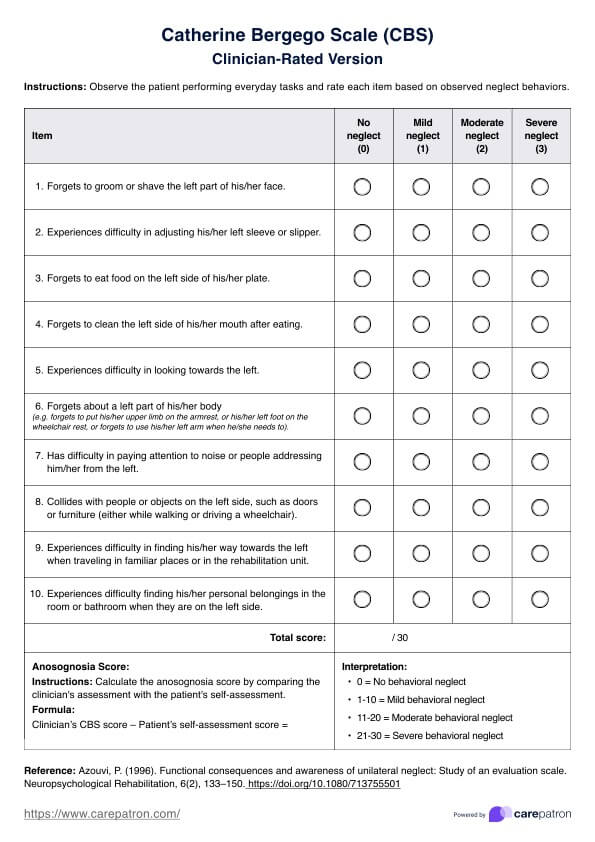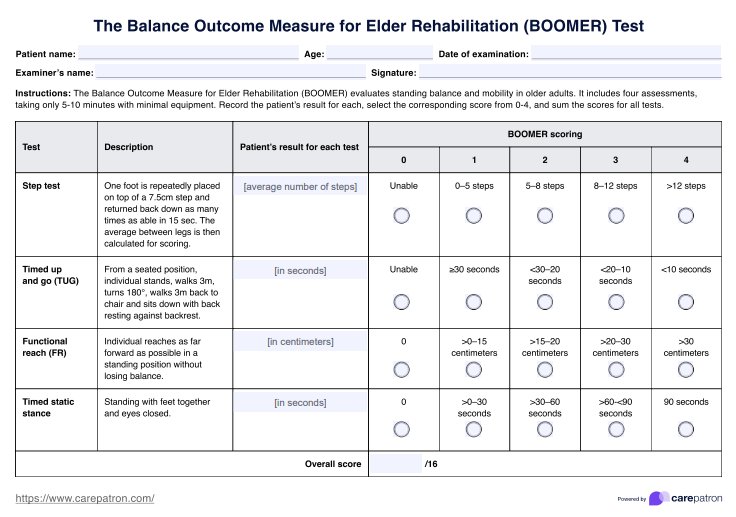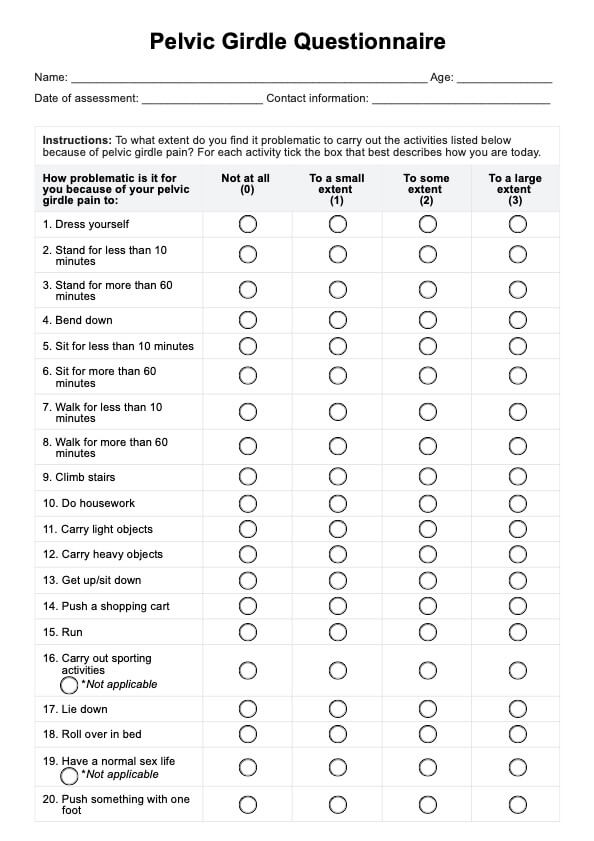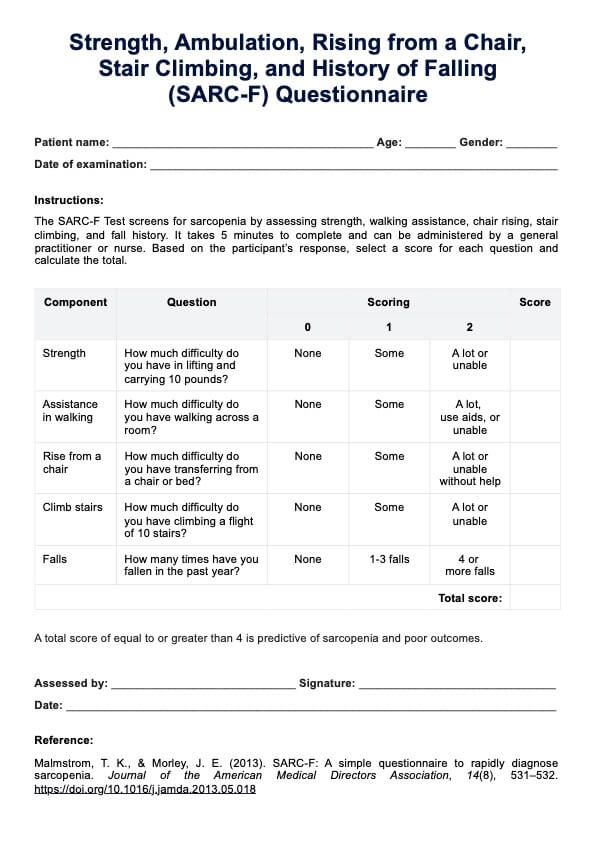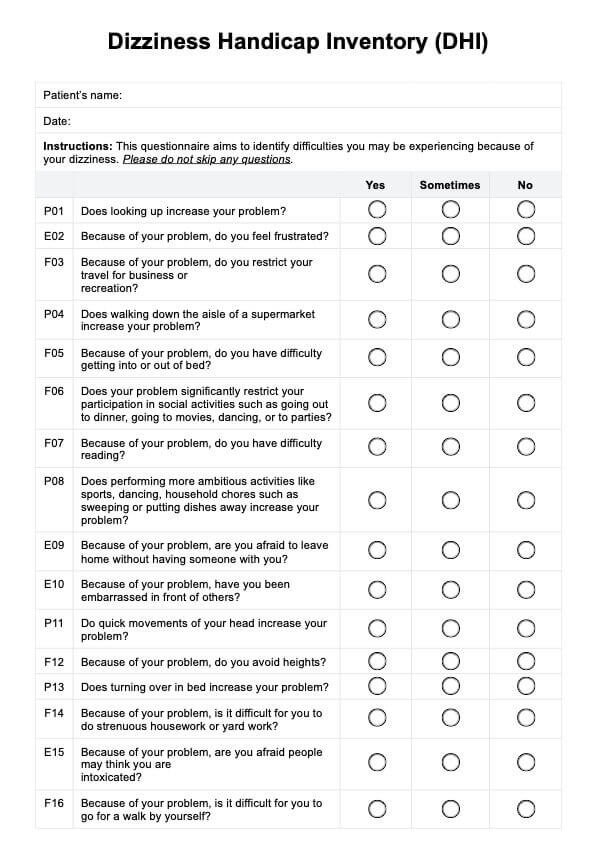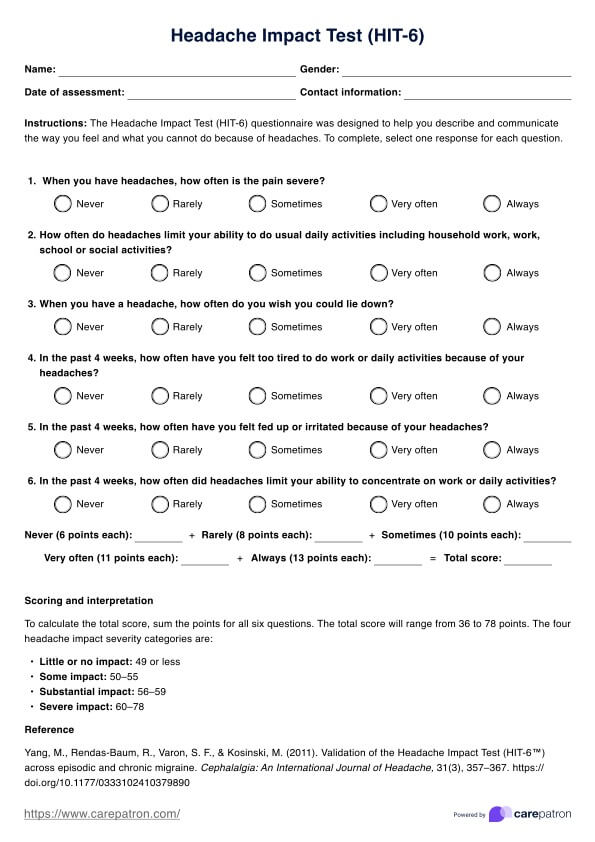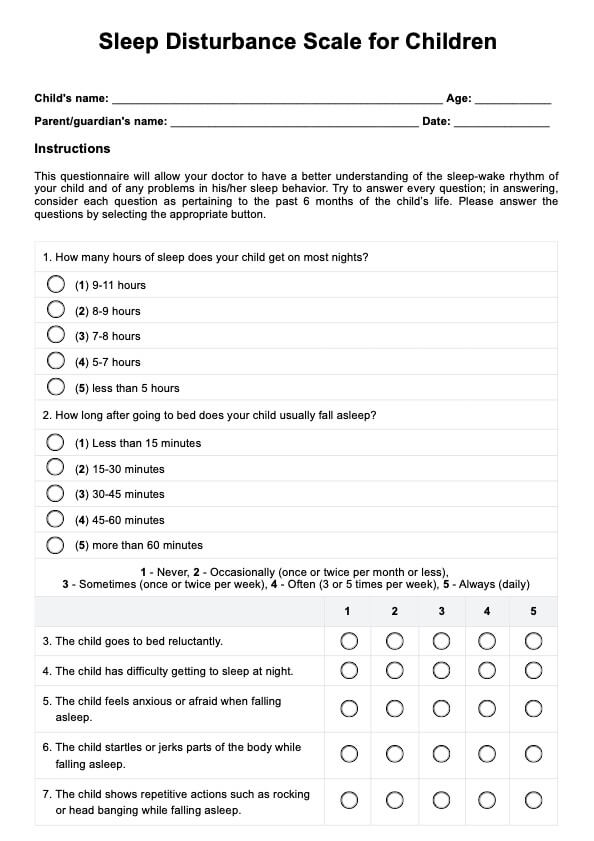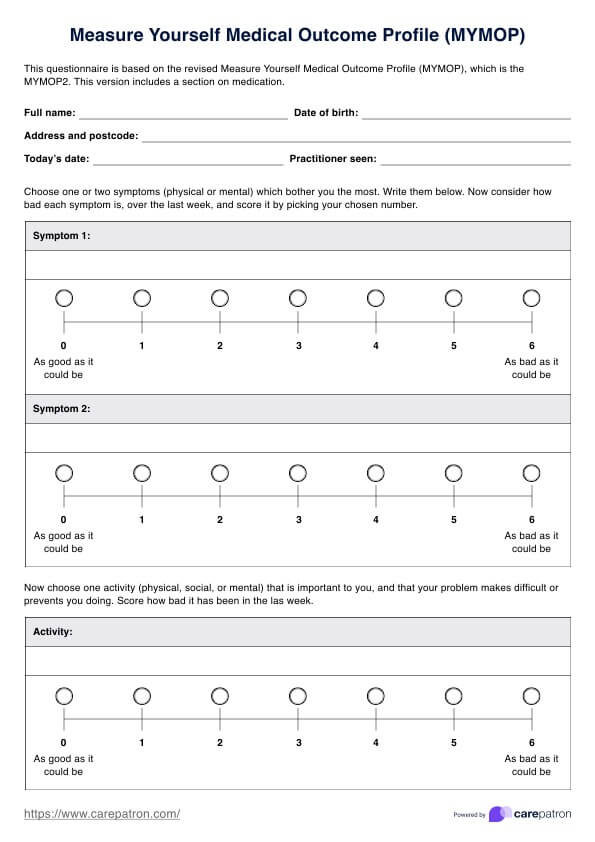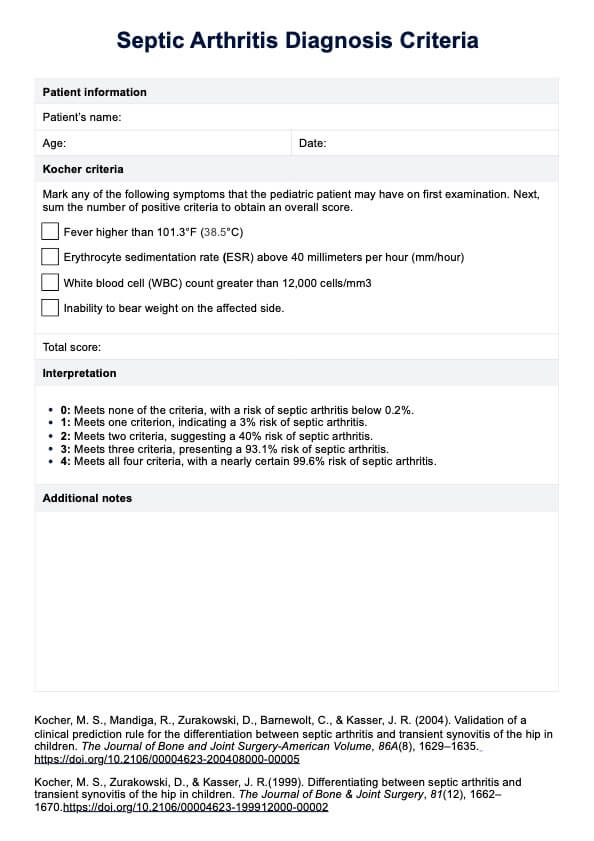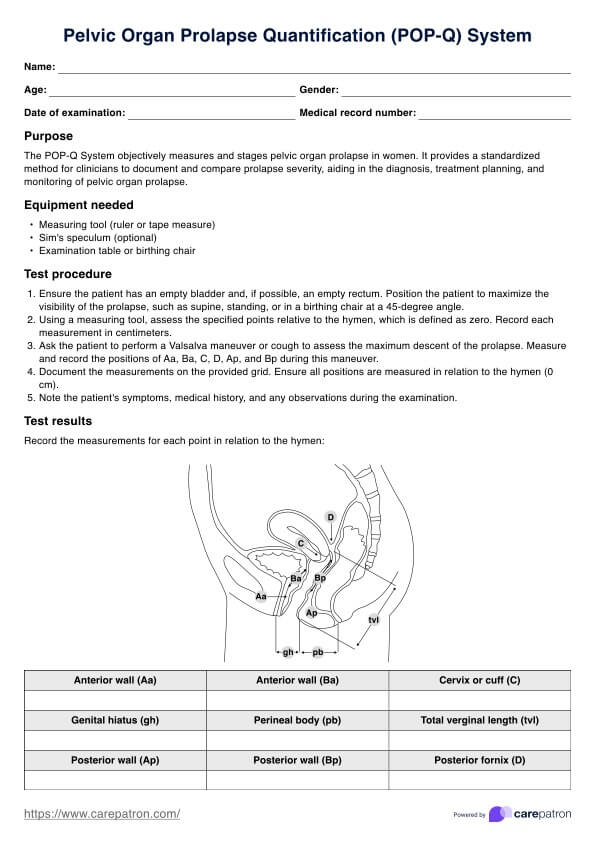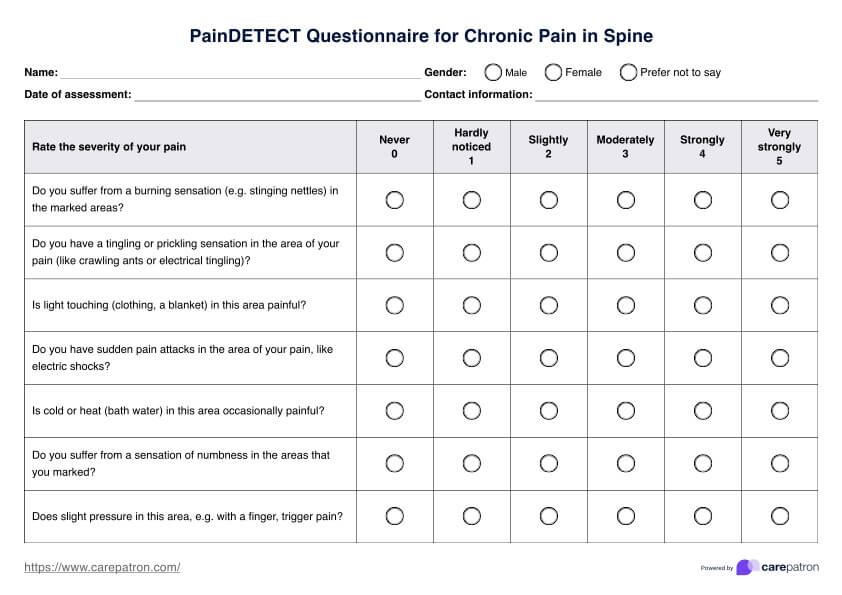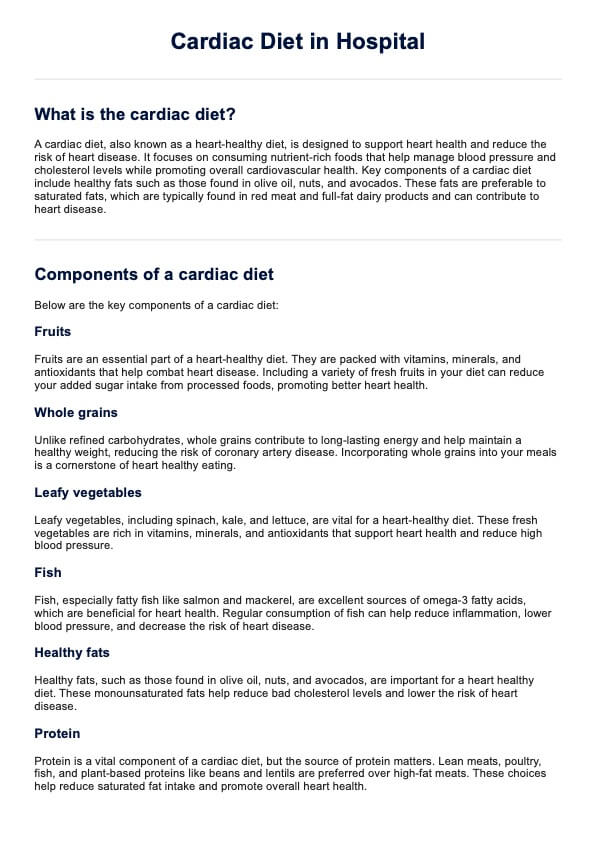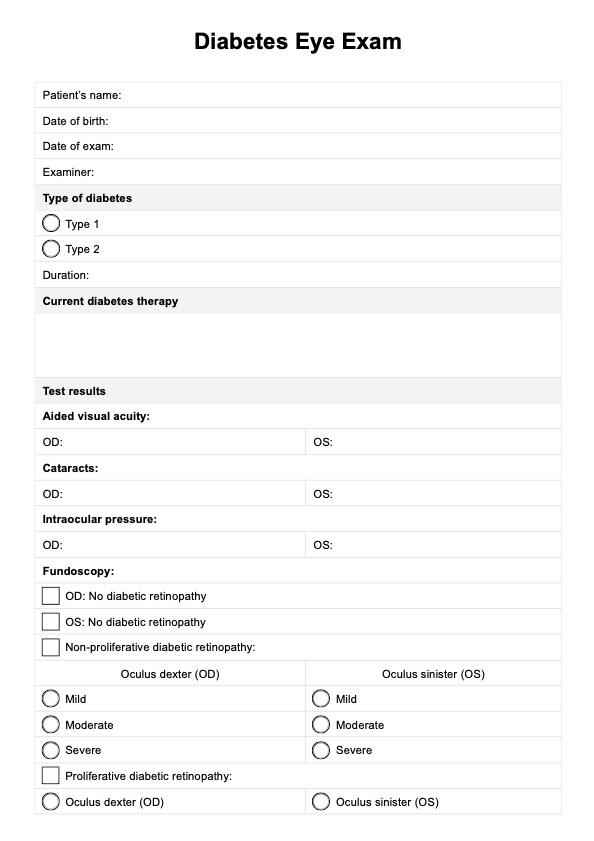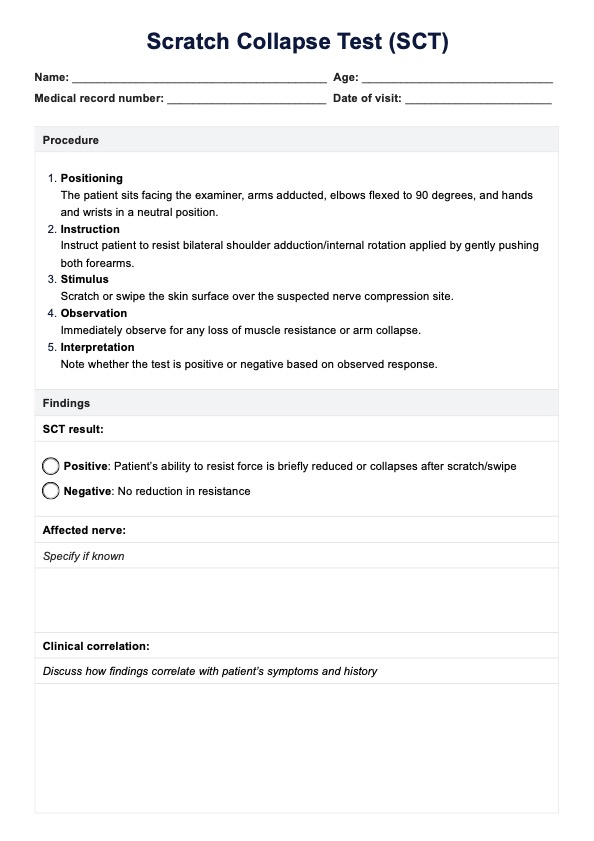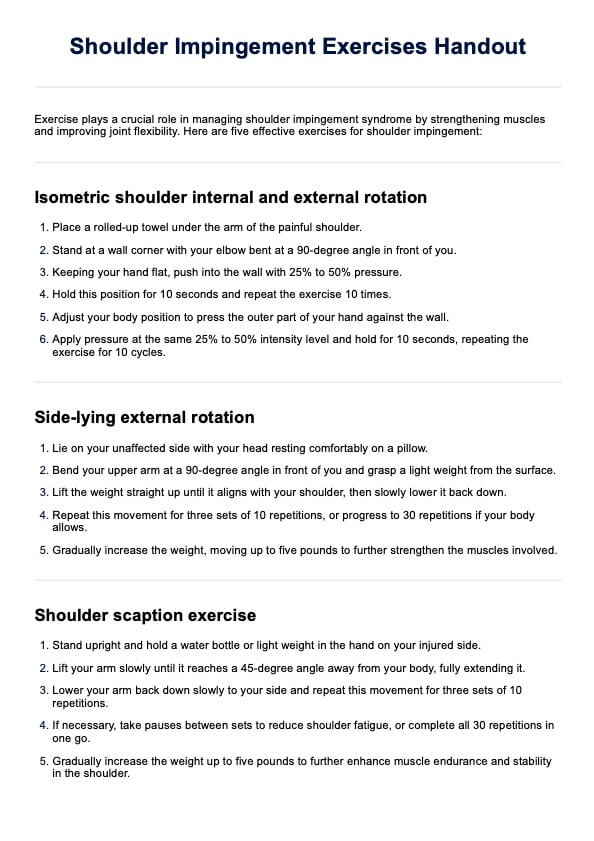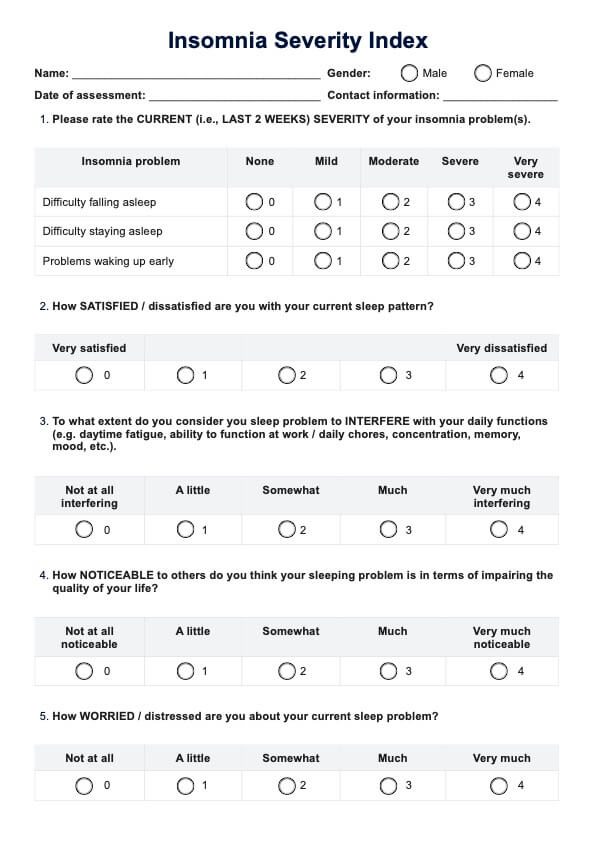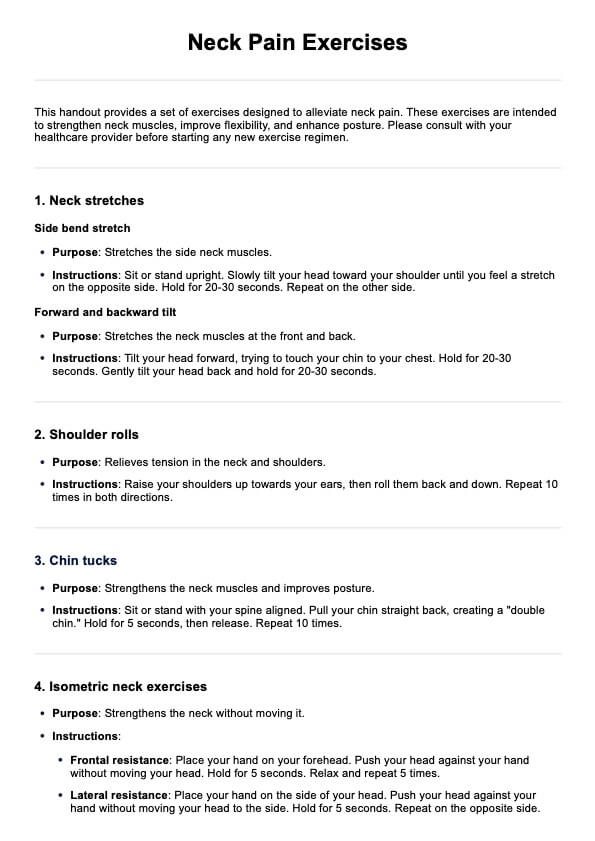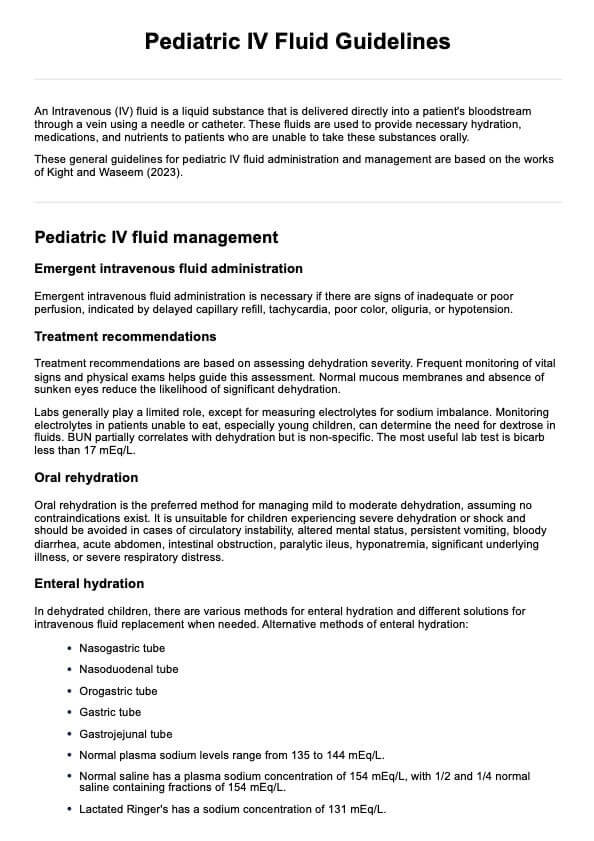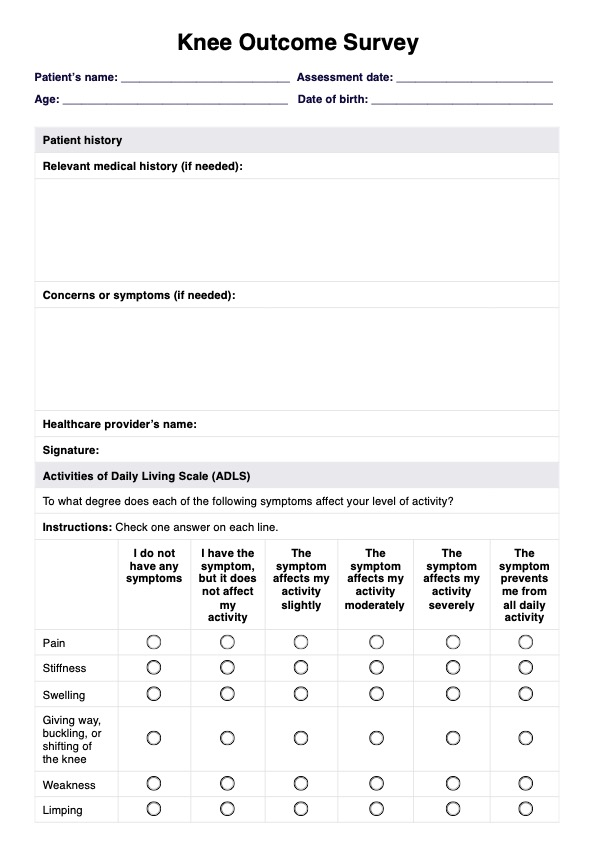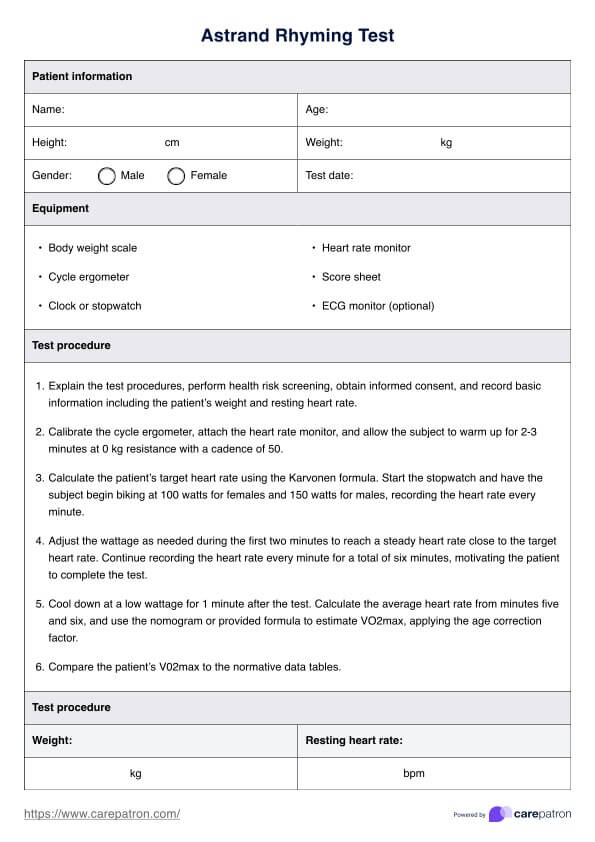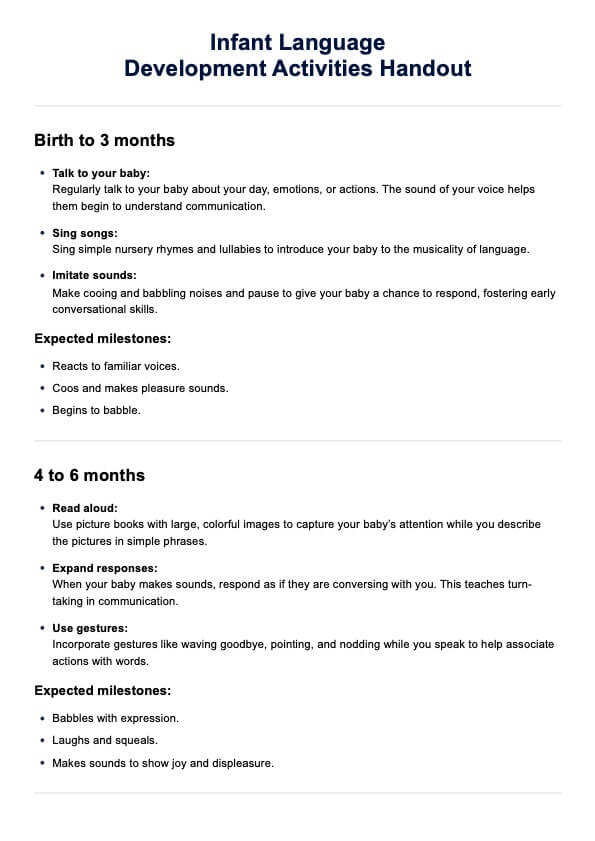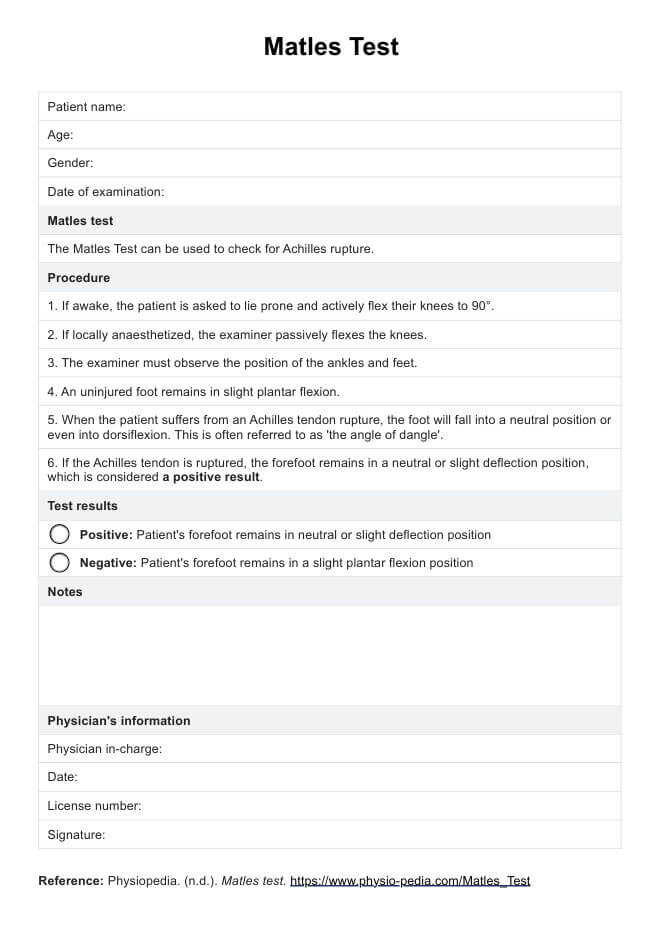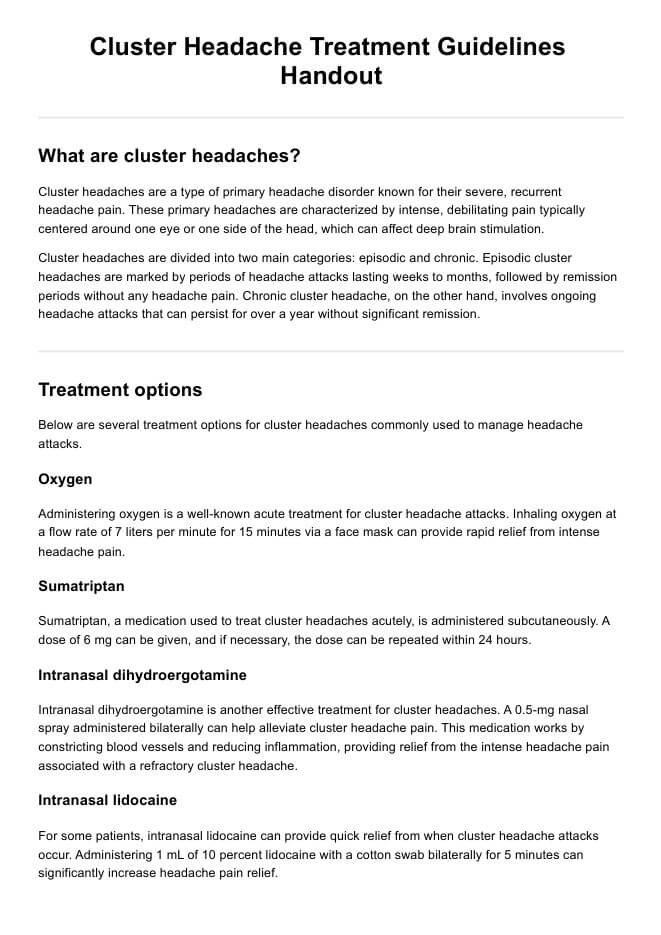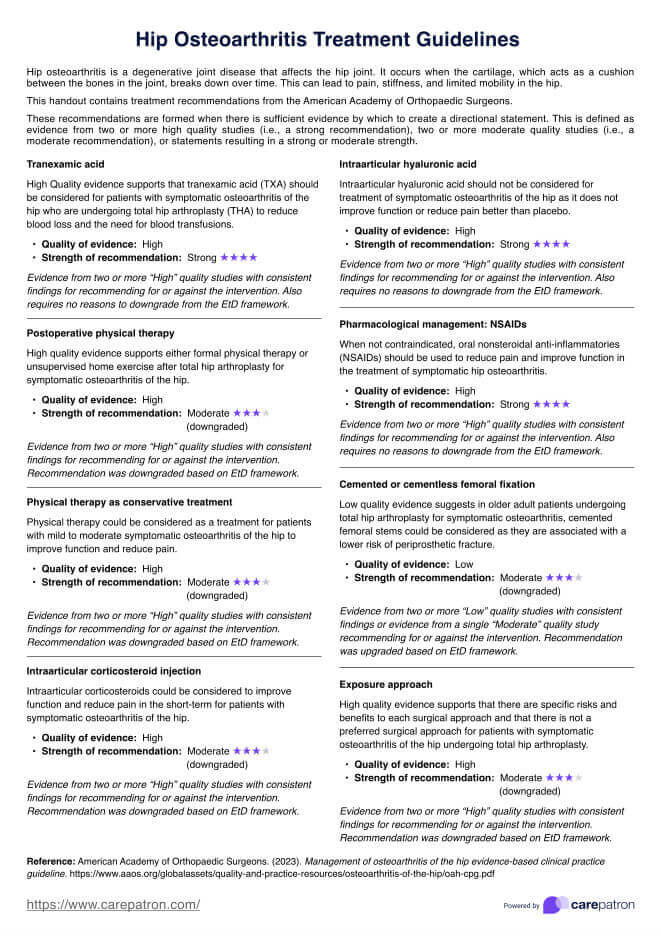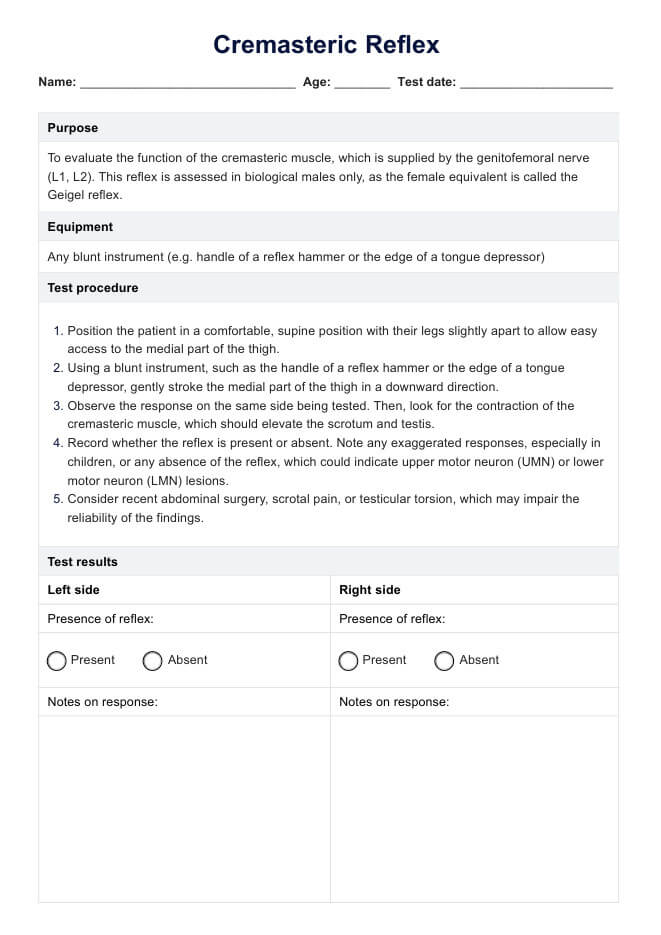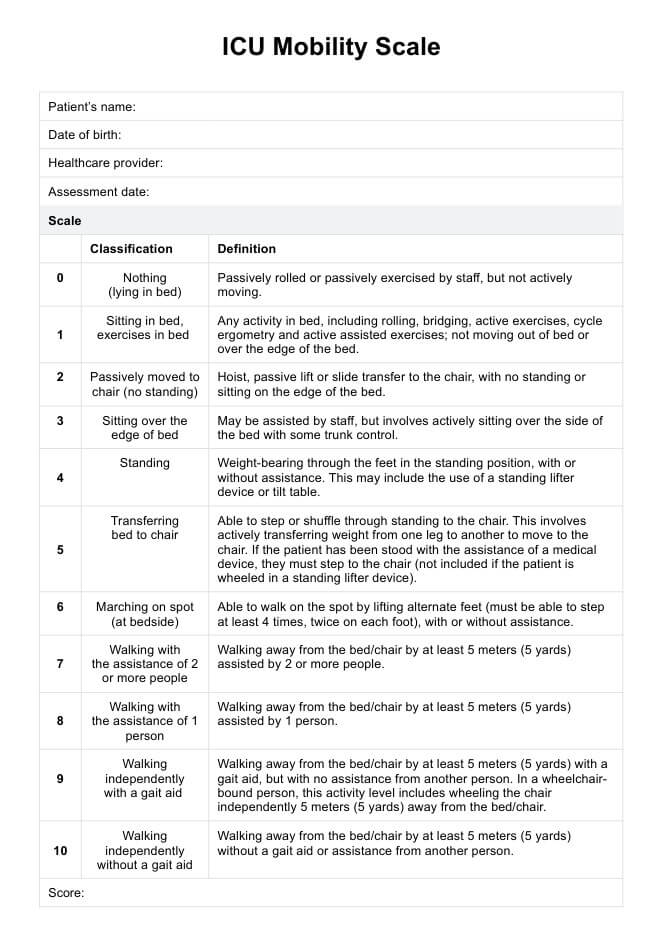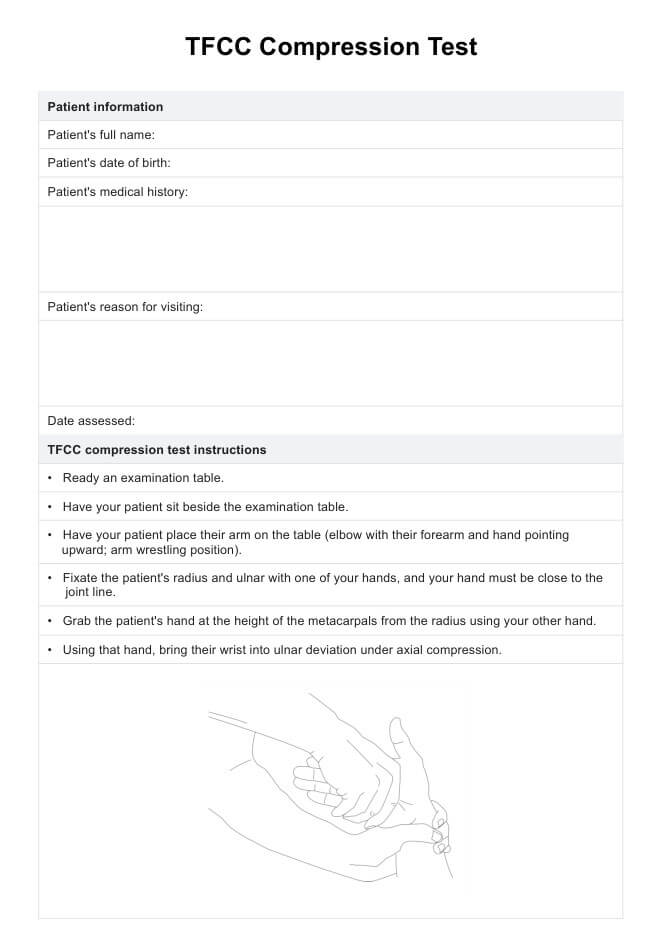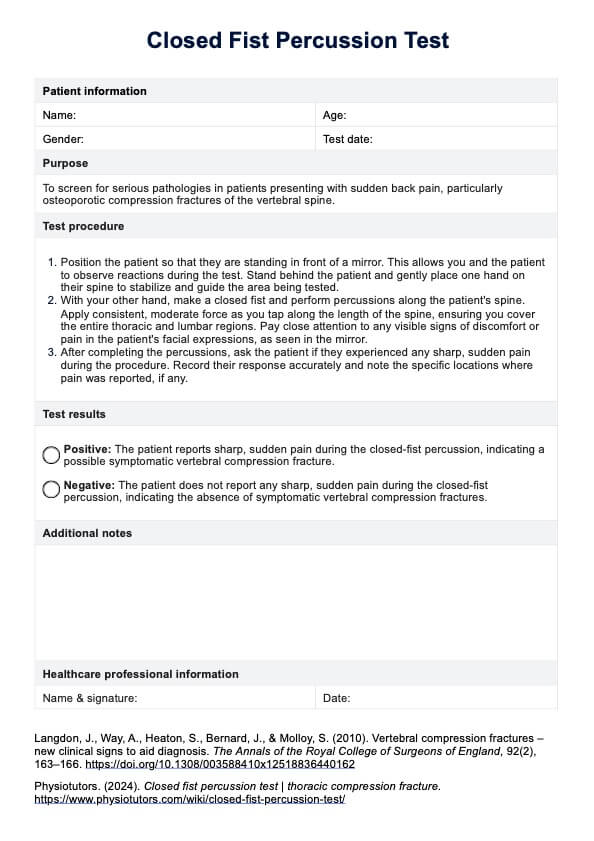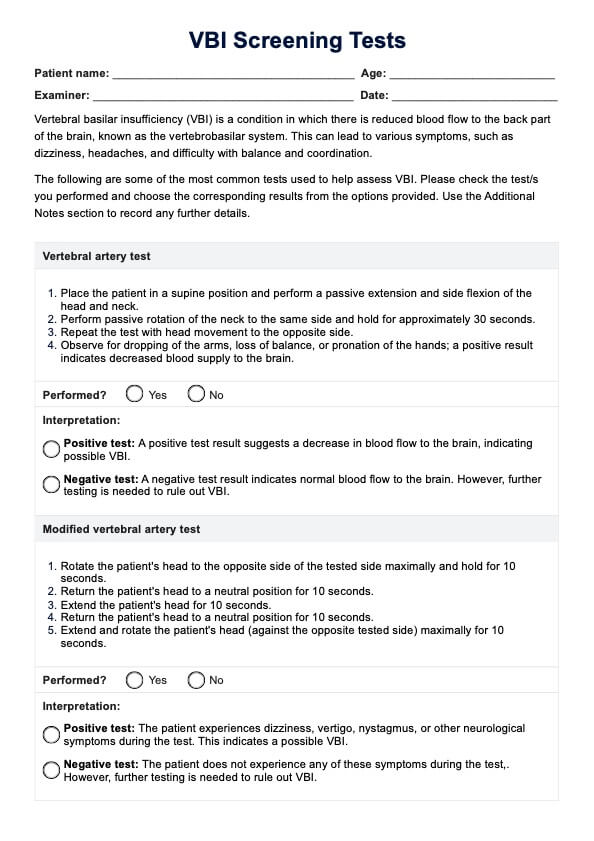Fatigue Severity Scale
The Fatigue Severity Scale (FSS) is useful for measuring fatigue levels. Get Carepatron's free PDF download to use this scale effectively.


What does it mean to feel fatigued?
Feeling fatigued goes beyond ordinary tiredness; it is a pervasive sense of exhaustion that can affect both the mind and body. Fatigue can manifest in various ways, such as physical fatigue, where one experiences a significant decrease in physical energy and strength, and mental fatigue, which involves a reduction in cognitive function and mental sharpness. Fatigue is a common symptom in several medical conditions, including systemic lupus erythematosus, chronic fatigue syndrome, and multiple sclerosis.
Individuals with sleep disorders like sleep apnea often experience excessive daytime sleepiness, contributing to subjective fatigue—a personal perception of tiredness that can vary widely among individuals. Chronic illnesses, including stroke, can lead to poststroke fatigue, where stroke patients struggle with persistent exhaustion that impedes recovery. Fatigue is also prevalent among those undergoing chronic illness therapy fatigue, where ongoing treatment drains energy levels.
To effectively measure fatigue, healthcare practitioners use various fatigue measurement scales. These scales, such as the visual analog scale, help in quantifying the severity and impact of fatigue on daily life. Tools like fatigue scales are essential for assessing both physical tiredness and mental fatigue in patients. Accurate fatigue measurement is crucial in managing conditions like chronic fatigue syndrome and systemic lupus erythematosus, as it guides treatment and helps monitor progress. Understanding and measuring fatigue are vital steps in providing comprehensive care and improving quality of life for affected individuals.
Causes of fatigue
Fatigue can stem from a variety of factors, ranging from lifestyle choices to underlying medical conditions. Understanding the causes is crucial for effective management and treatment. Here are some common causes of fatigue:
- Lack of sleep: Insufficient sleep or poor-quality sleep can lead to excessive daytime sleepiness and physical tiredness.
- Poor diet: A diet lacking essential nutrients can decrease energy levels and fatigue.
- Stress: Chronic stress can drain energy reserves and lead to mental fatigue.
- Physical inactivity: A sedentary lifestyle can contribute to a general sense of tiredness and decreased physical stamina.
- Medical conditions: Conditions such as systemic lupus erythematosus, chronic fatigue syndrome, multiple sclerosis, and sleep disorders like sleep apnea are common culprits of persistent fatigue.
- Medications: Certain medications can have side effects that include fatigue.
- Chronic illnesses: Ongoing illnesses such as diabetes, heart disease, and chronic illness therapy fatigue can cause sustained fatigue.
- Mental health issues: Depression and anxiety are often associated with significant fatigue.
- Poststroke: Stroke patients frequently experience poststroke fatigue, which can hamper rehabilitation efforts.
Potential problems fatigue might be a sign of
Fatigue can be a symptom of several serious health issues. It often indicates underlying conditions such as anemia, which involves a deficiency in red blood cells, or hypothyroidism, where low thyroid hormone levels lead to sluggishness.
Chronic fatigue syndrome and systemic lupus erythematosus are notable for persistent, unexplained fatigue. Fatigue may also signal mental health disorders like depression and anxiety, or sleep disorders such as sleep apnea.
Additionally, it can be a symptom of chronic illnesses such as diabetes, heart disease, or multiple sclerosis and may indicate ongoing infections or poststroke complications.
Fatigue Severity Scale Template
Fatigue Severity Scale Example
What is the Fatigue Severity Scale (FSS)?
The Fatigue Severity Scale (FSS) is a widely used tool designed to measure the severity of fatigue and its impact on a person's daily life. It consists of a 9-item questionnaire that assesses the extent to which fatigue interferes with certain activities and the overall quality of life. The FSS is particularly useful in chronic conditions like multiple sclerosis, where fatigue is a common and debilitating symptom.
Developed as a standardized severity scale, the FSS helps clinicians and researchers quantify fatigue levels, providing a basis for comparing results across different studies and treatments. Unlike the Epworth Sleepiness Scale, which measures daytime sleepiness, the FSS focuses specifically on fatigue's impact on daily functioning. It complements tools such as the Modified Fatigue Impact Scale and the Beck Depression Inventory, offering a comprehensive view of a patient's condition.
The FSS is often used with treatments like cognitive behavioral therapy, which can help manage the psychological aspects of fatigue. By accurately measuring fatigue severity, the FSS enables healthcare providers to tailor interventions more effectively, improving patient outcomes and quality of life.
Which healthcare professionals use this scale?
The Fatigue Severity Scale is utilized by a range of healthcare professionals across various specialties. Neurologists often employ it in managing conditions like multiple sclerosis, where fatigue is prevalent. Rheumatologists may utilize the FSS in patients with systemic lupus erythematosus or fibromyalgia, where fatigue is a significant symptom.
Primary care physicians may also incorporate the FSS into routine assessments, especially when evaluating chronic fatigue in patients with ongoing health concerns.
Additionally, psychologists and therapists may use the FSS as part of comprehensive assessments for conditions like depression or chronic fatigue syndrome, guiding treatment strategies accordingly.
How is this scored, and how are the results interpreted?
The Fatigue Severity Scale is scored using a 9-item questionnaire, where each item assesses how fatigue interferes with daily activities and its severity. Each item is rated on a 7-point scale, with 1 indicating "strongly disagree" and 7 indicating "strongly agree." The total score can range from 9 to 63, with higher scores indicating greater fatigue severity. Alternatively, the FSS can be scored by calculating the mean of all item scores, yielding a range from 1 to 7.
For enhanced accuracy, some researchers, such as Lerdal (2011), suggest excluding items 1 and 2, using a 7-item version (FSS-7). This version demonstrates better validity and reliability, making it more sensitive to changes in fatigue levels. Thus, practitioners may choose to use the FSS-7 for a more precise measurement of fatigue. Overall, interpreting the scores helps healthcare providers understand the impact of fatigue on a patient's life, guiding appropriate treatment interventions.
References
Lerdal, A., & Kottorp, A. (2011). Psychometric properties of the Fatigue Severity Scale-Rasch analyses of individual responses in a Norwegian stroke cohort. International Journal of Nursing Studies, 48(10), 1258–1265. https://doi.org/10.1016/j.ijnurstu.2011.02.019
Commonly asked questions
A Fatigue Severity Scale (FSS) is a tool used to measure the impact of fatigue on a person's daily activities and overall quality of life. It consists of a nine-item questionnaire, with each item rated on a seven-point scale.
The Fatigue Severity Scale (FSS) uses a grading scale from 1 to 7, where 1 means "strongly disagree" and 7 means "strongly agree" with statements about fatigue. The total score ranges from 9 to 63, with higher scores indicating greater fatigue severity.
Fatigue levels are measured by having patients complete the Fatigue Severity Scale (FSS) questionnaire, rating their agreement with each statement about fatigue on a scale of 1 to 7. The scores are then summed or averaged to determine the overall severity of fatigue.
A normal Fatigue Severity Scale score is generally lower, indicating minimal impact of fatigue on daily activities. Scores closer to 9 suggest low fatigue severity, while higher scores indicate more severe fatigue.


